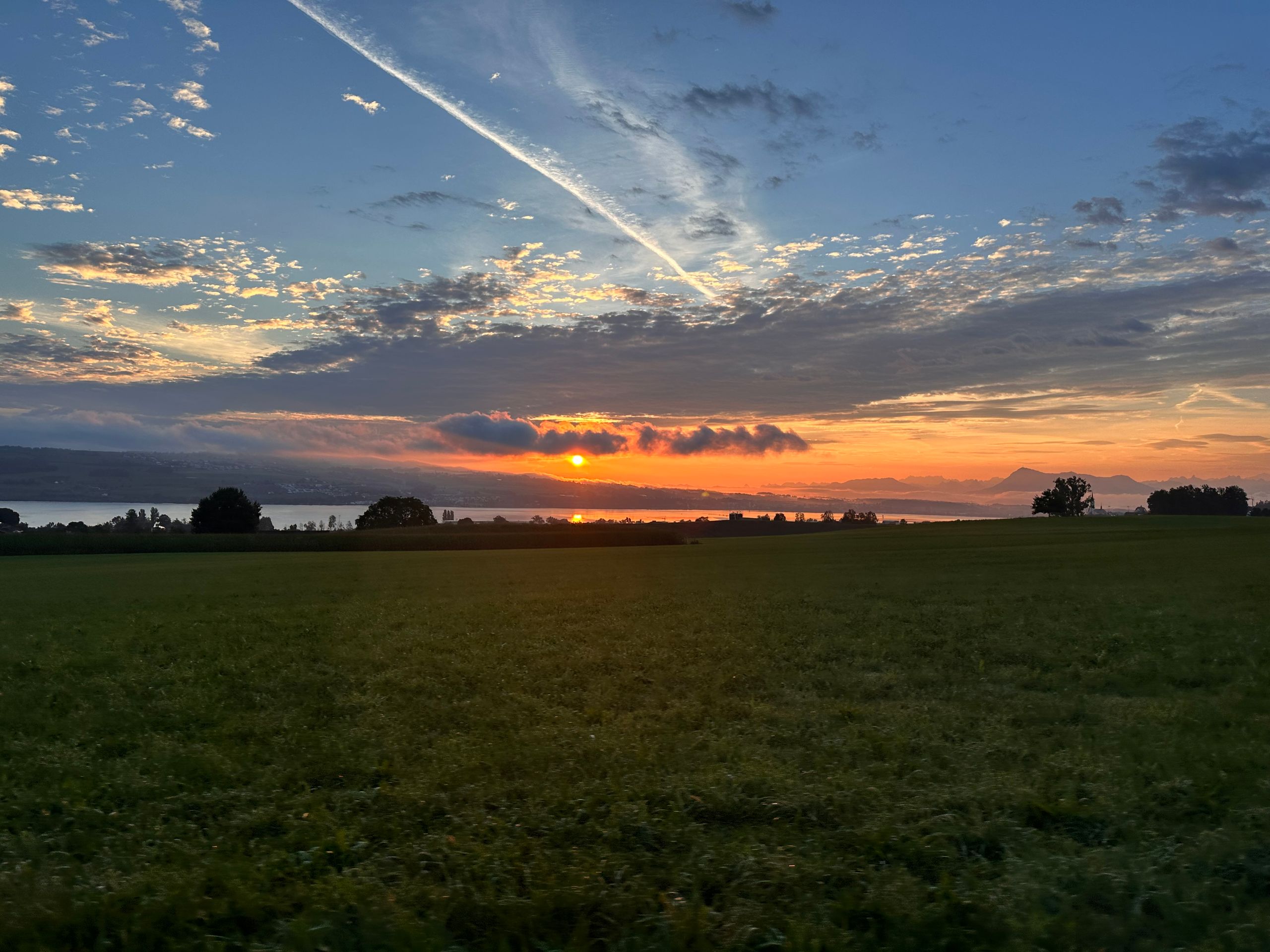Lourmarin and its Castle
Çap edildi: 08.10.2024
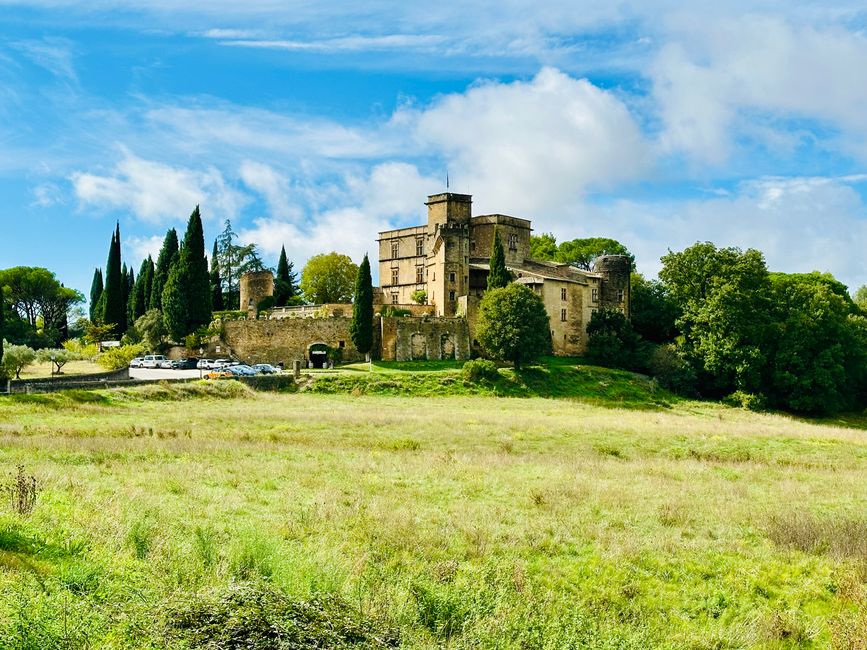
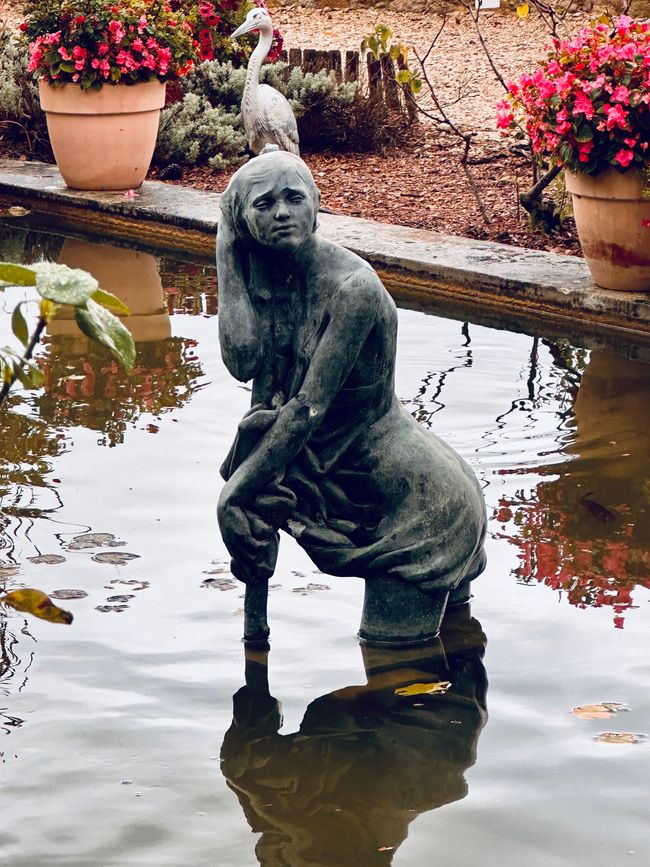
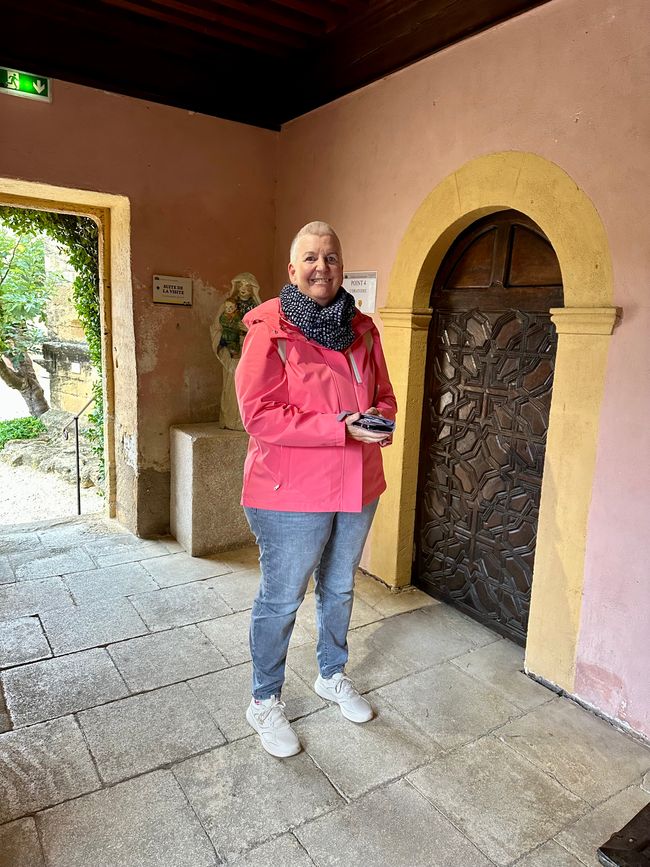
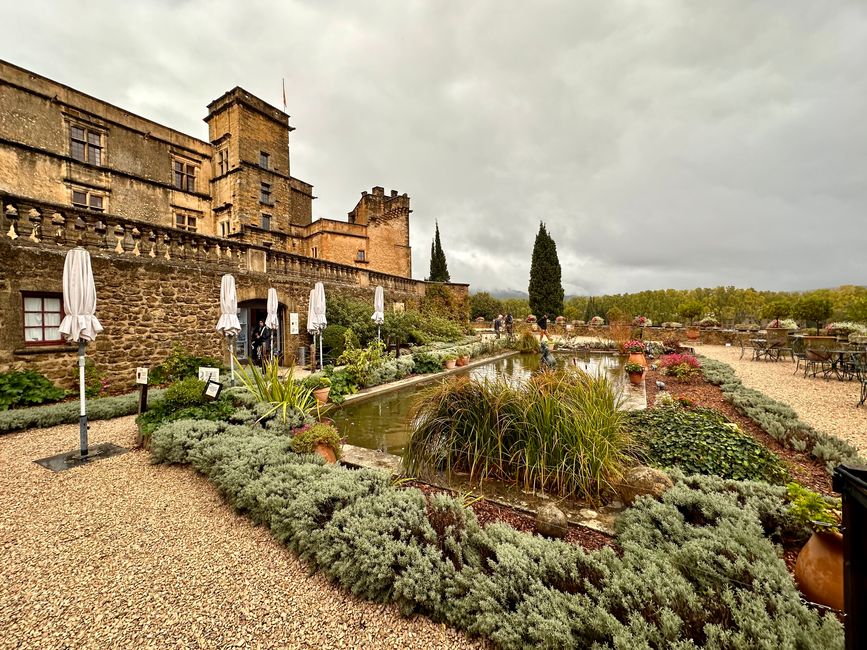
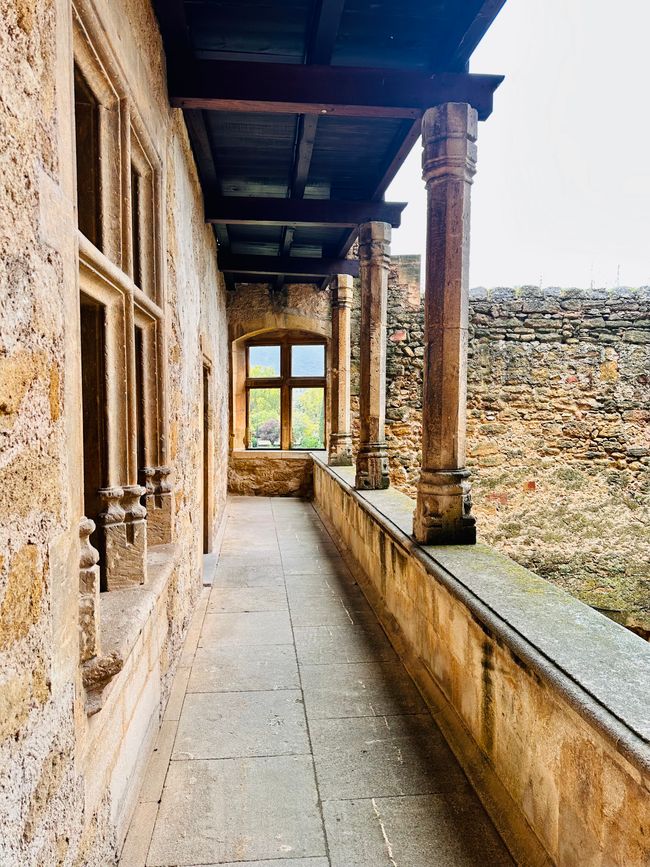
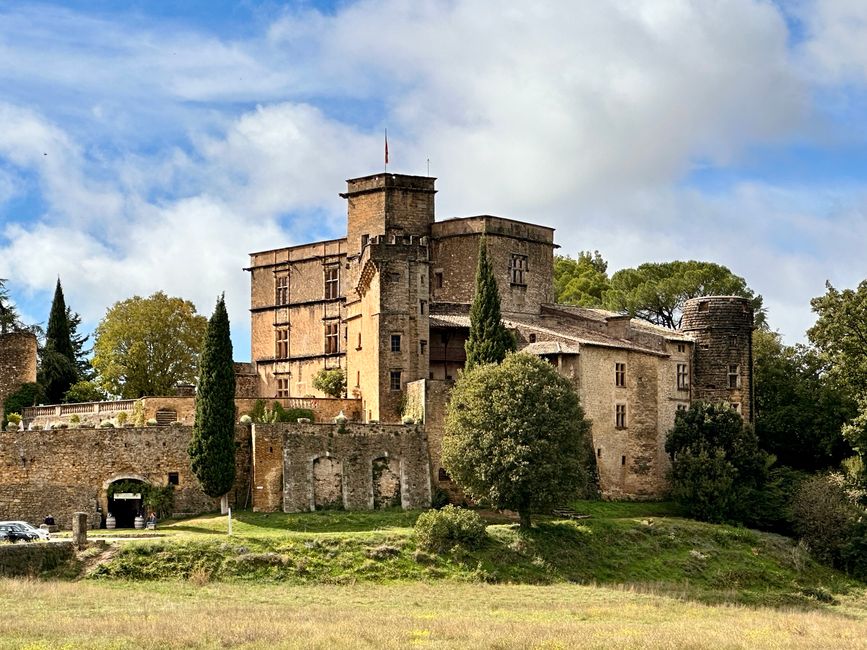
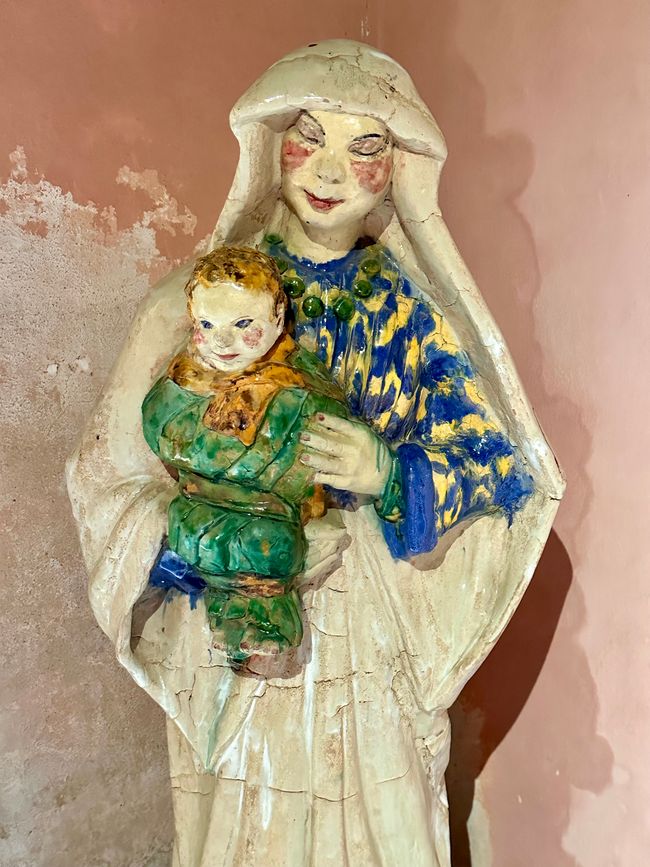
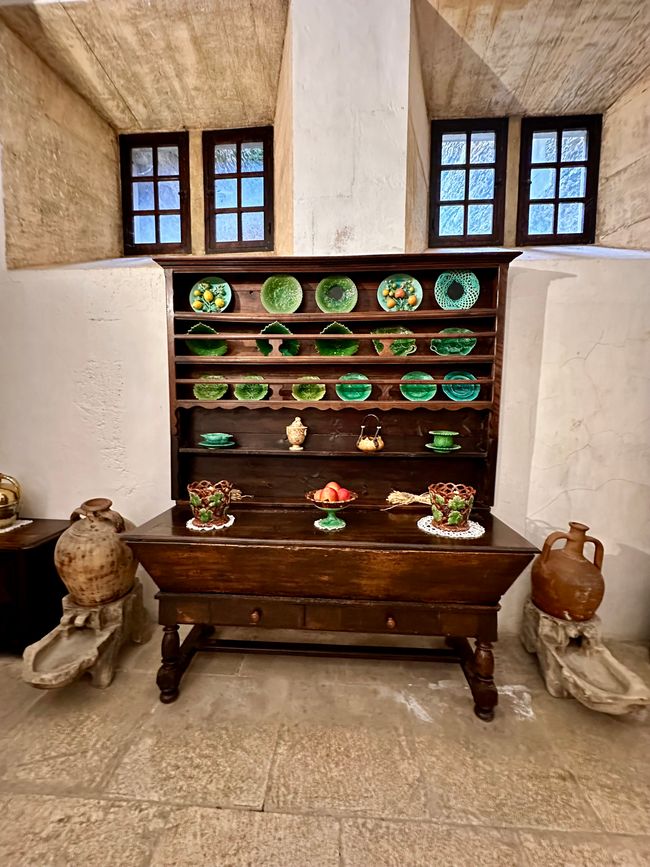
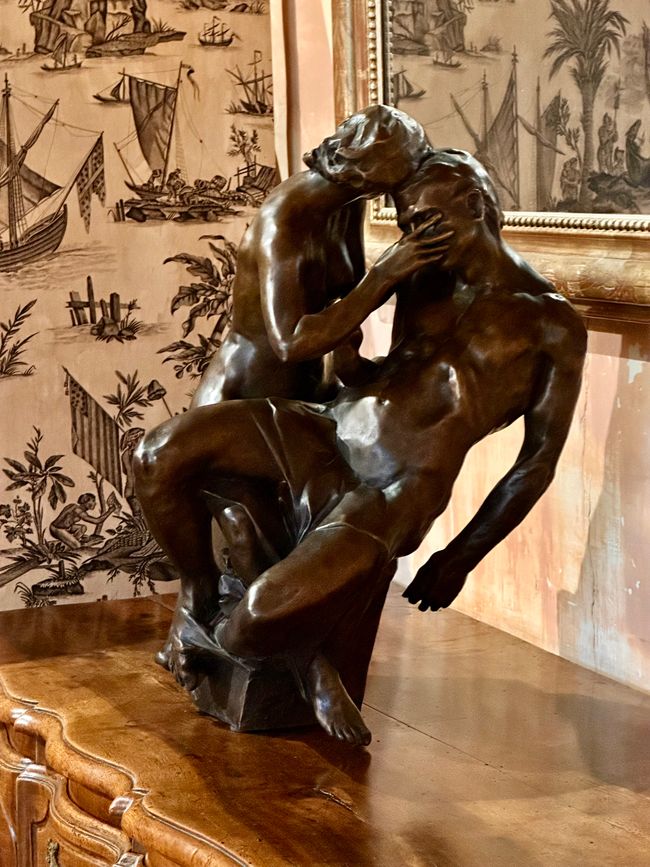
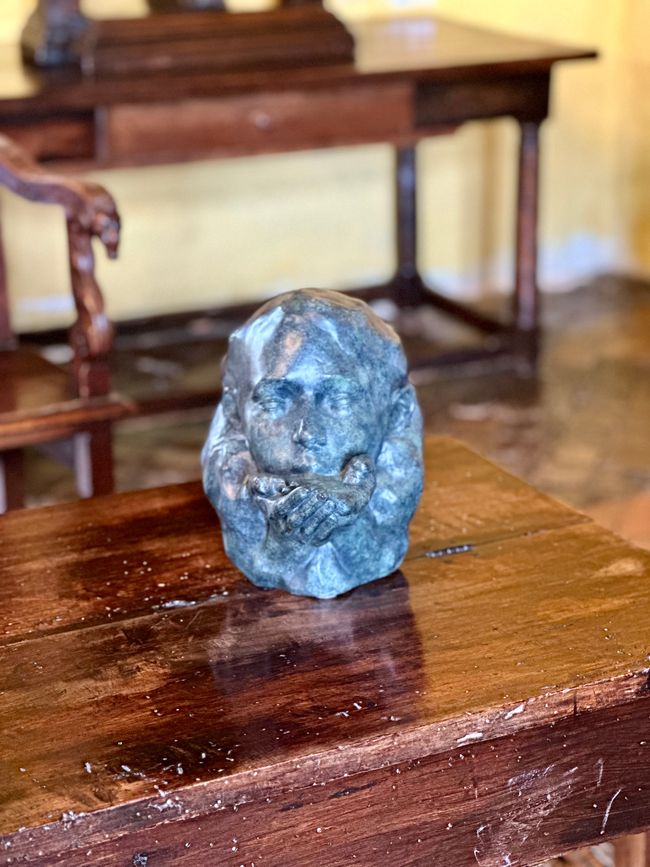
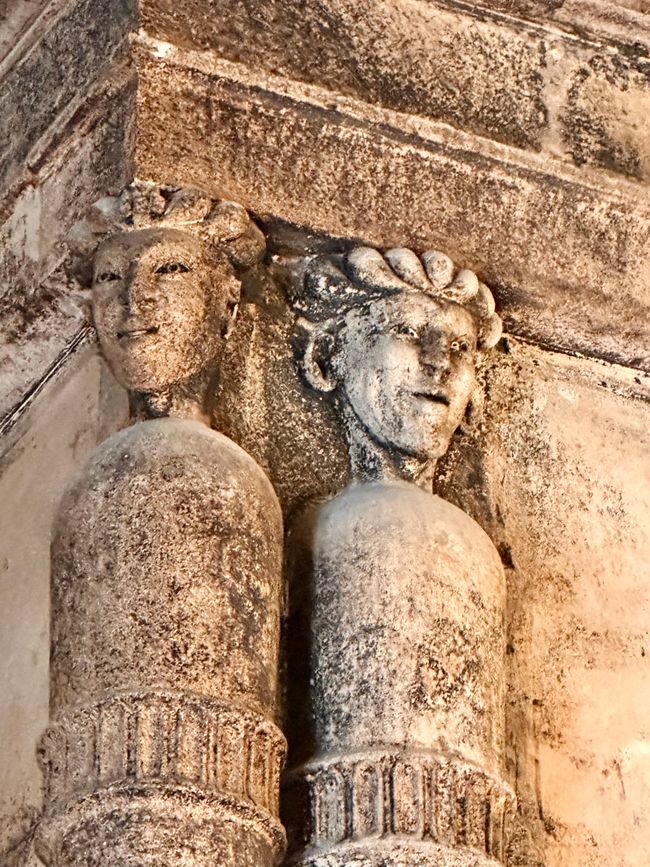
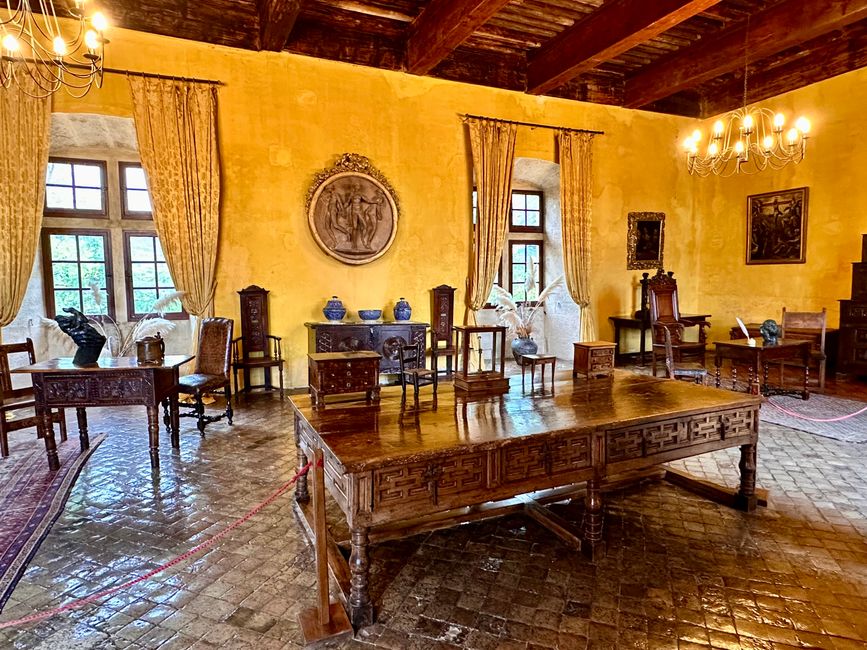
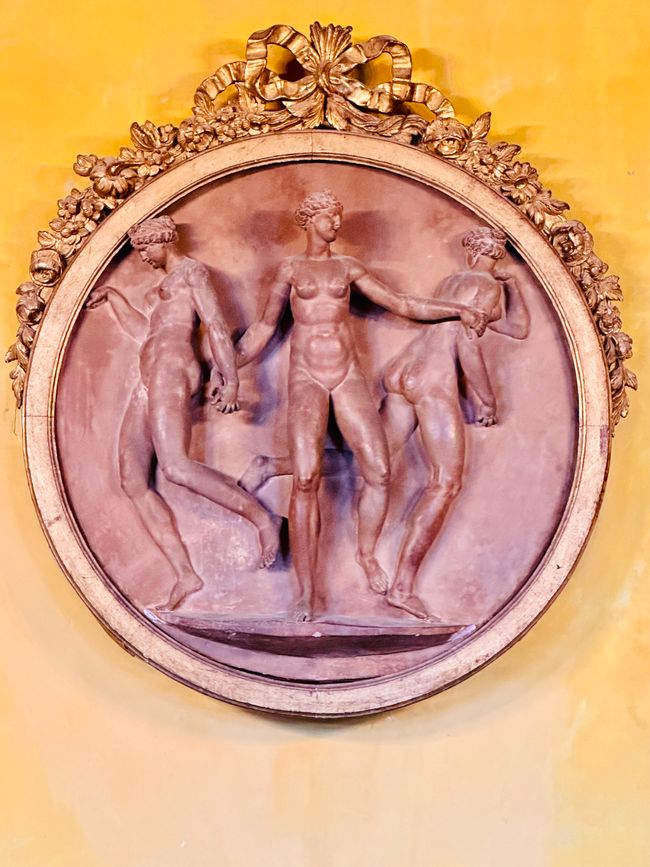
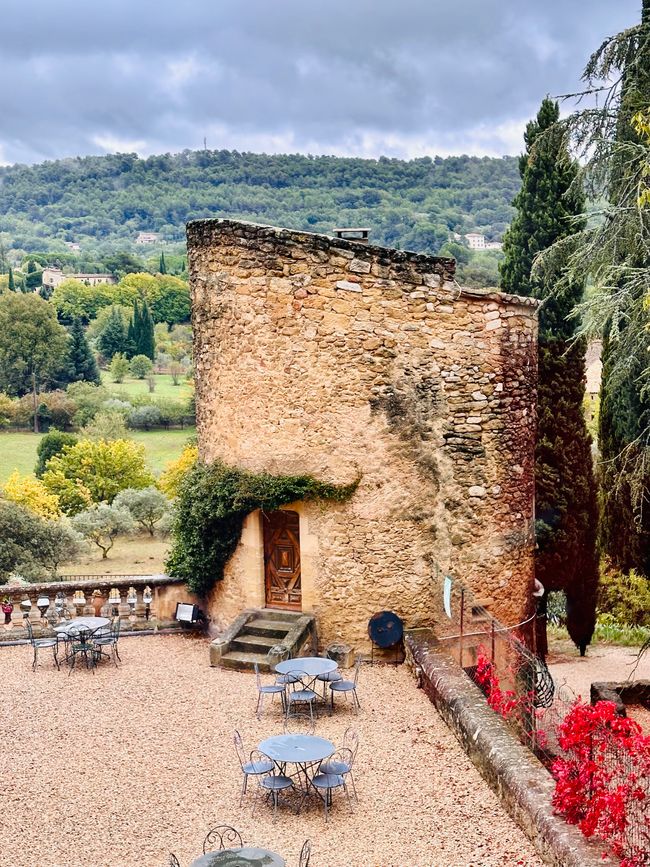
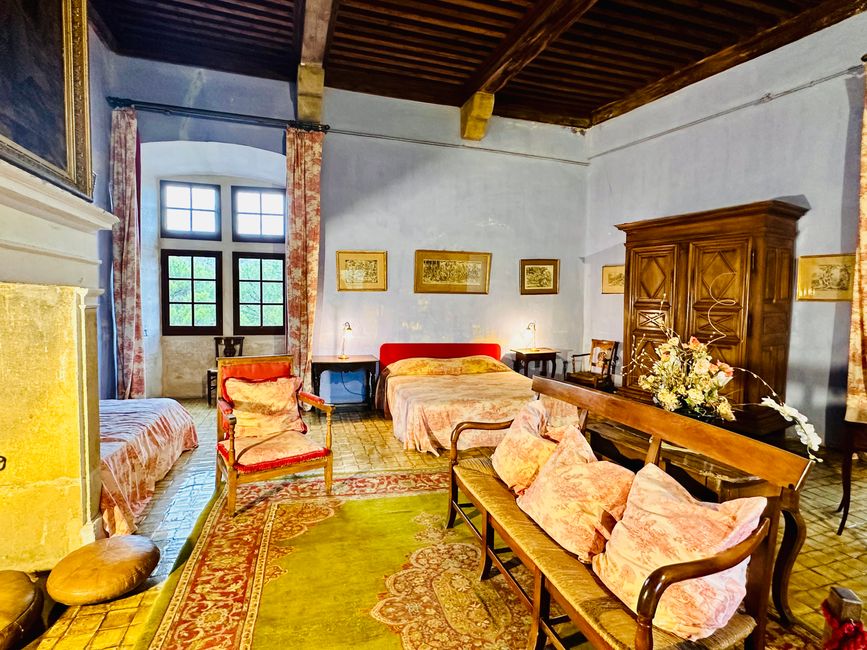
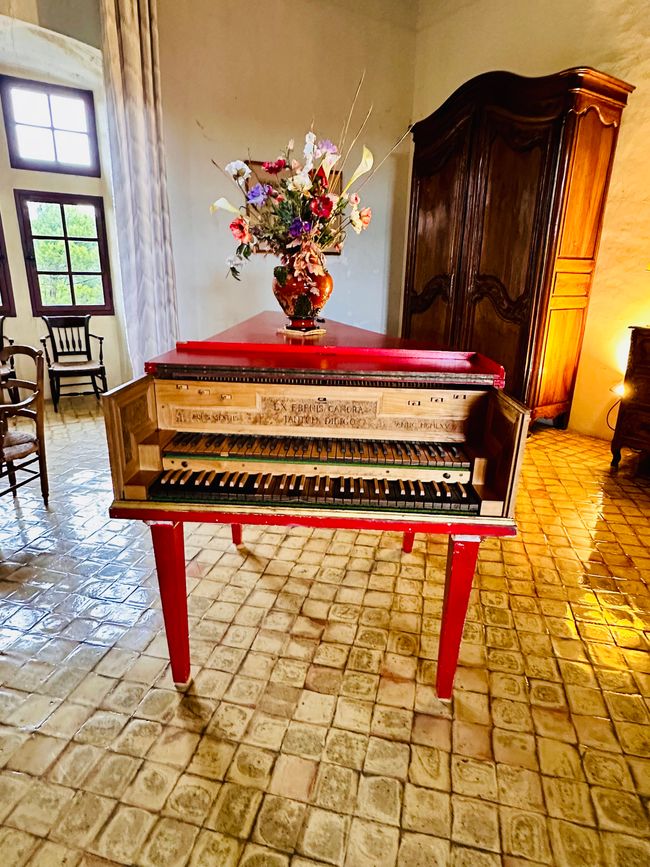
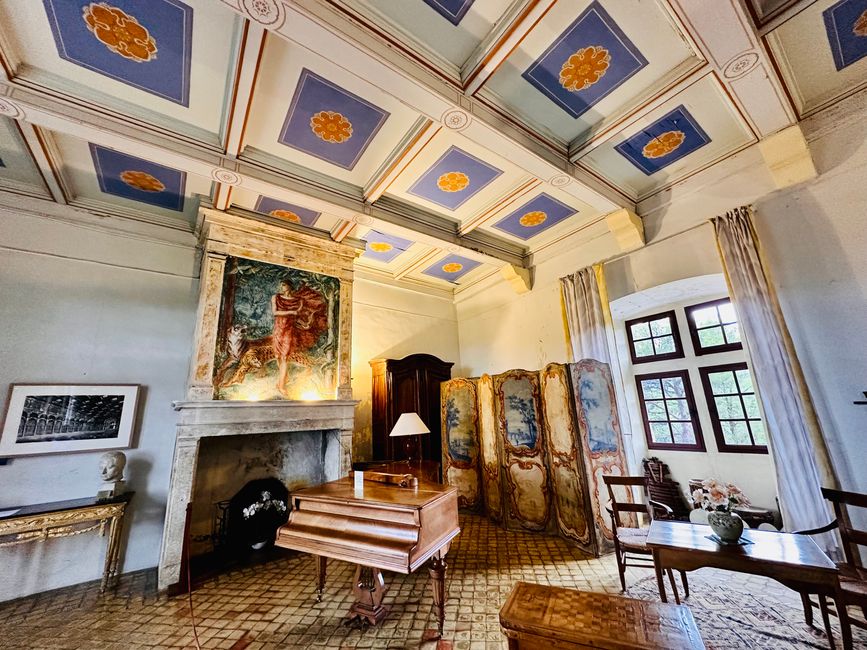
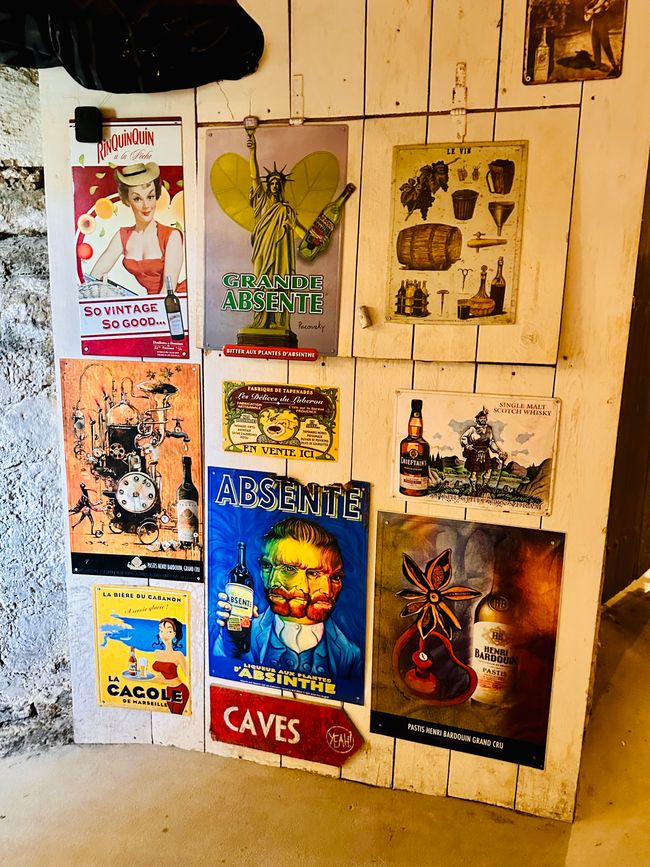
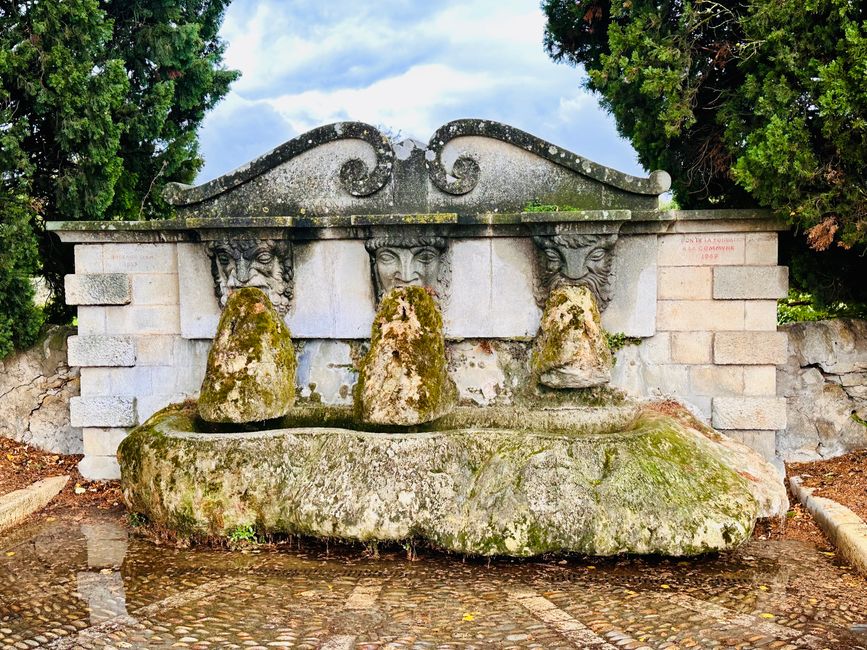
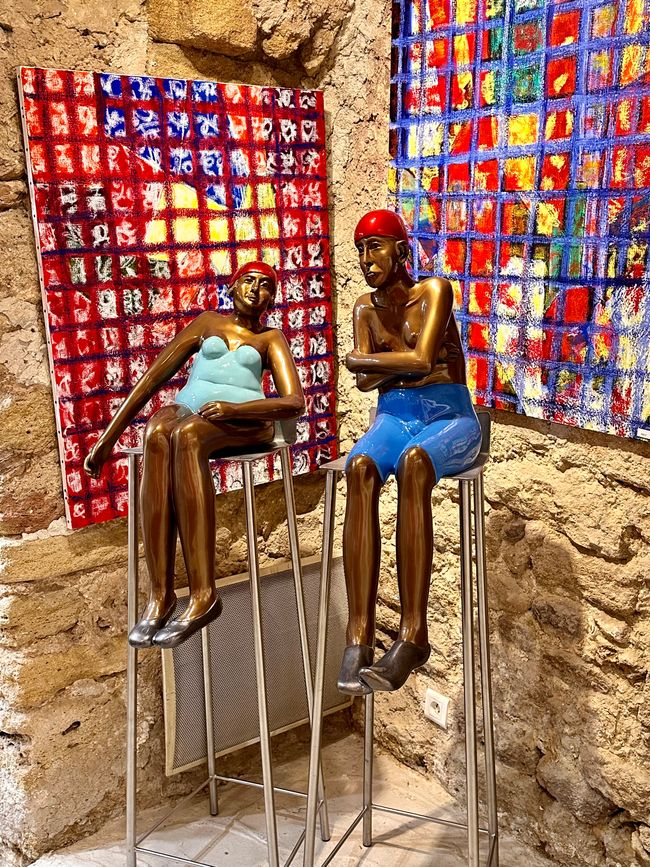
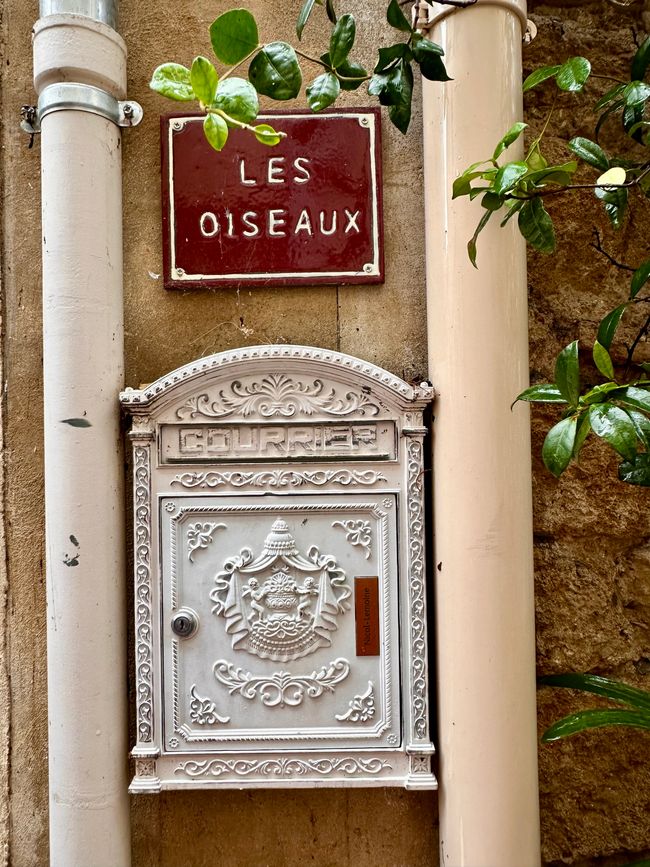
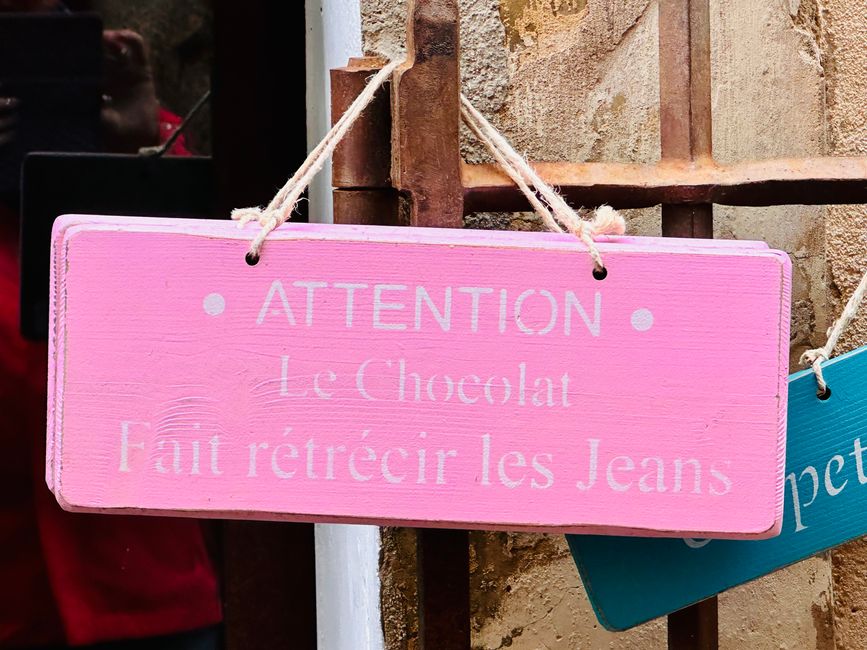
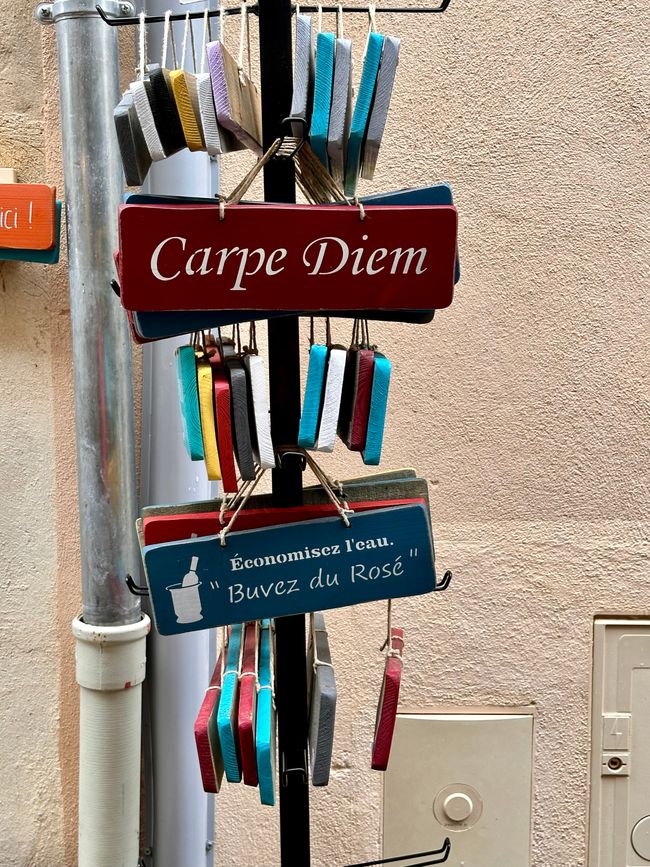
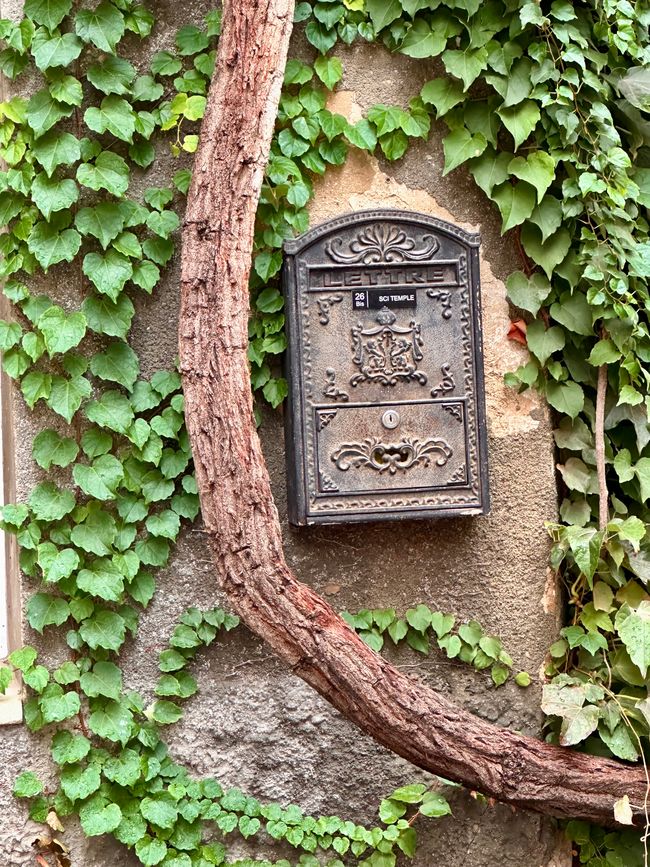
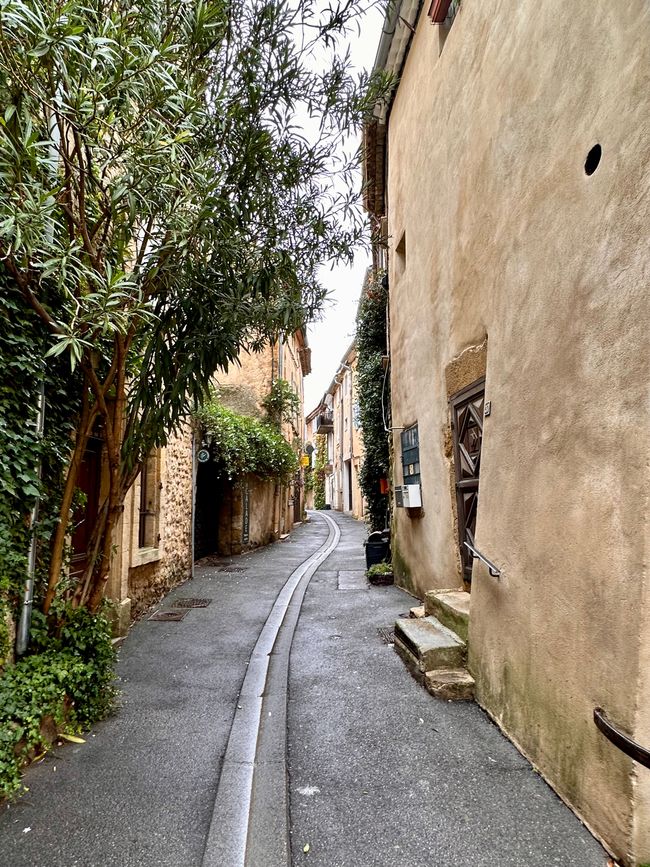
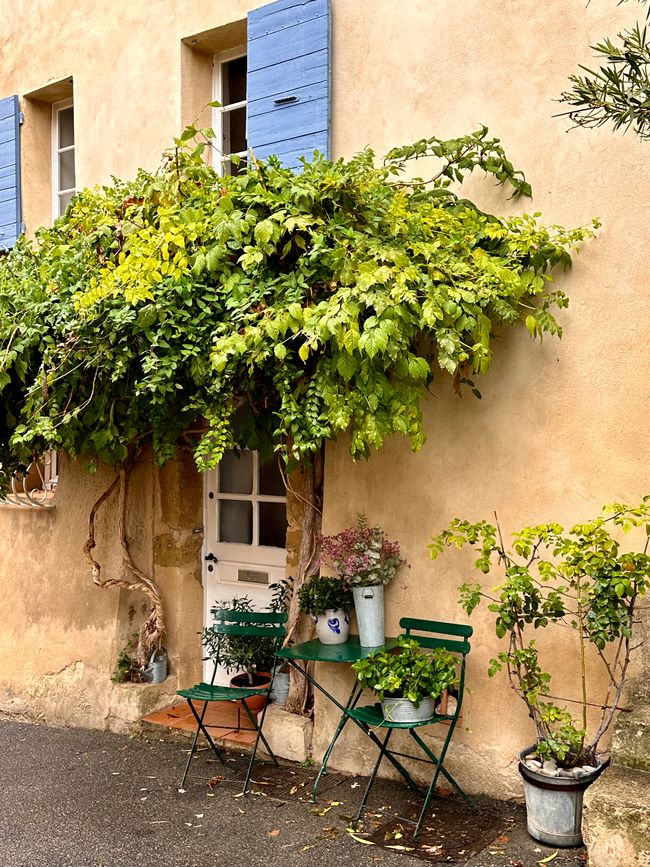
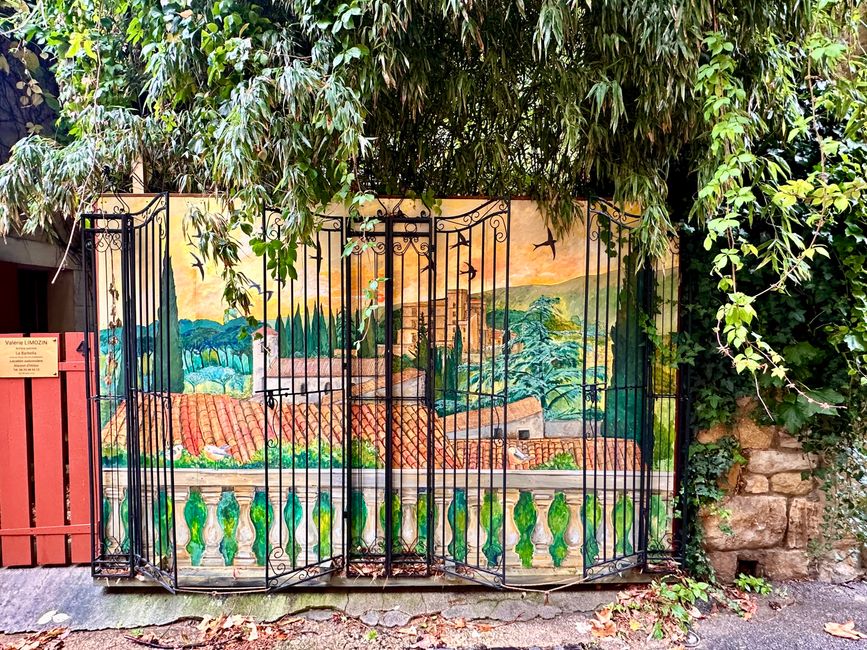
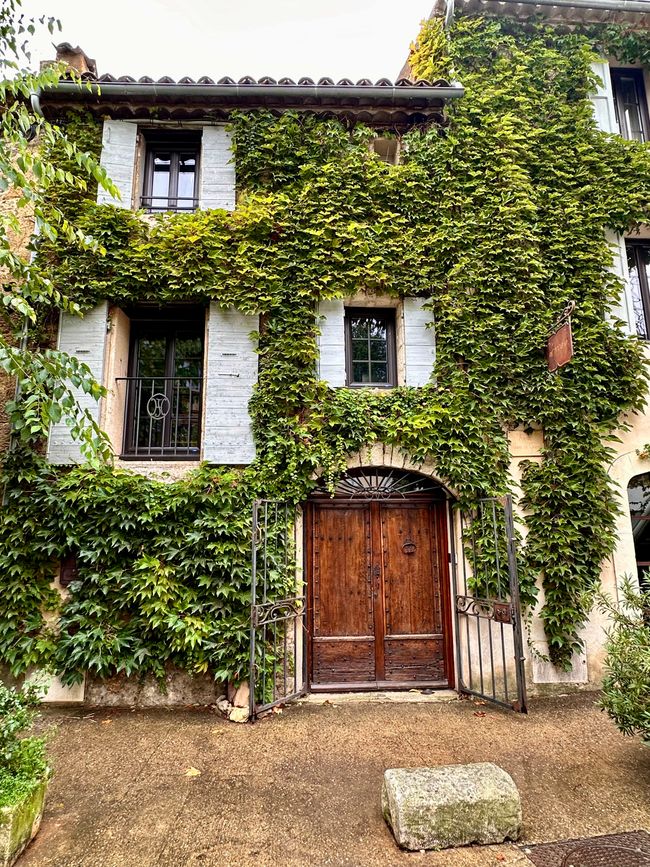
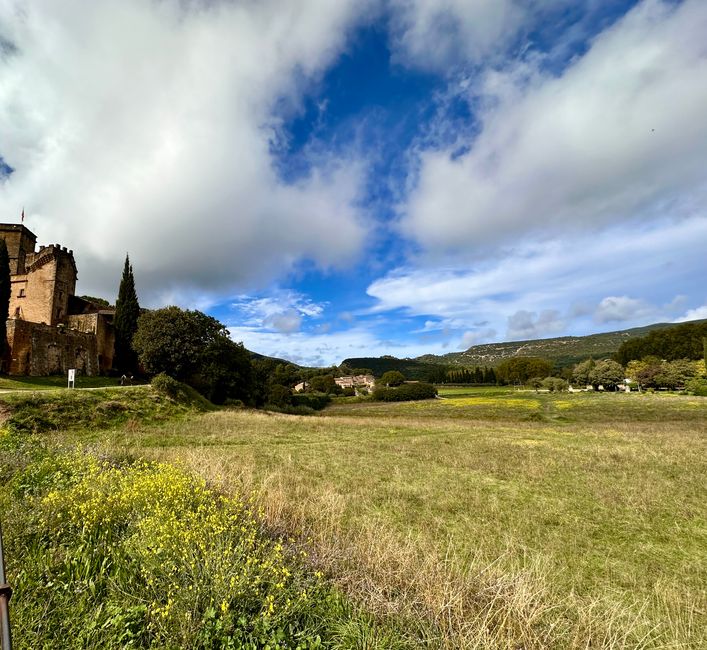
Habar býulletenine ýazylyň
This morning the weather was dreary. Lightning, rain, and thunder. We need a bad weather plan today. We decided to visit Le Château de Lourmarin.
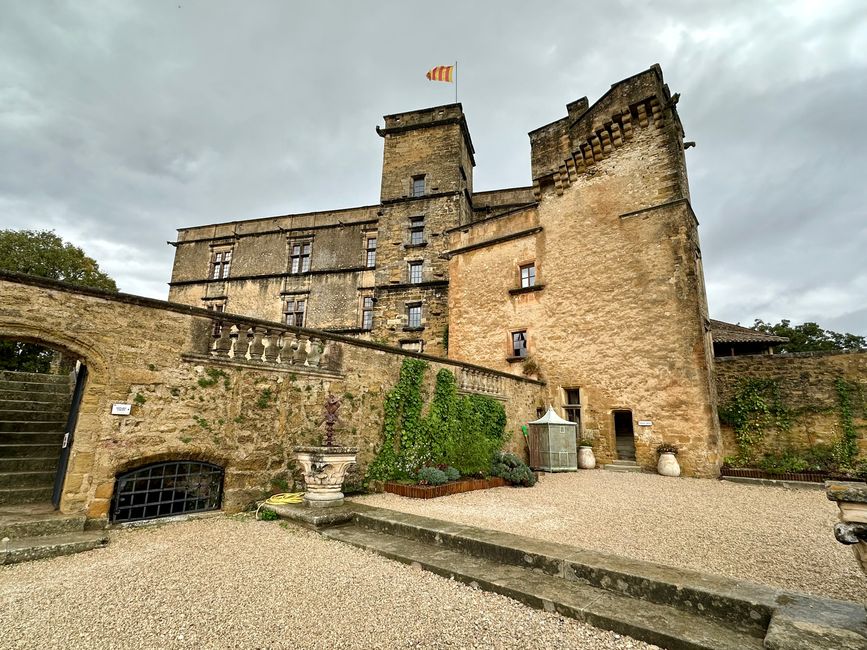
The castle of Lourmarin consists of two parts: a medieval section (1475-1526), built by Foulques III d'Agoult, and a second Renaissance-style section (1526-1560), built by Foulques' descendants, making it the first Renaissance castle in Provence.
The Château-Vieux includes a courtyard surrounded by three floors with Italian-style galleries and a small polygonal tower with battlements.
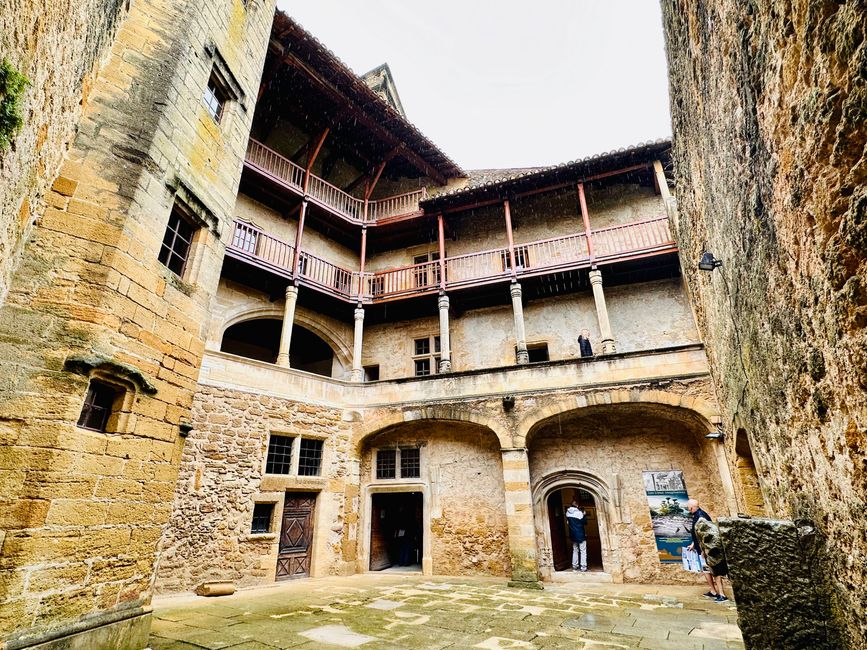
The Renaissance section features a series of large furnished rooms on three levels, accessible via a beautiful double-spiral staircase. In these Renaissance rooms, there are also collections of engravings and art objects, as well as original architectural elements on display. The castle was restored in 1921 by a patron and is now a residence for young artists, exhibitions, and concerts.
On the first floor, one could access the living quarters of the lord of the castle through the gallery, known as the loggia. Today, these rooms serve as a library, housing part of the collection of Robert Laurent-Vibert, the castle's restorer, featuring works by Camus and Bosco.
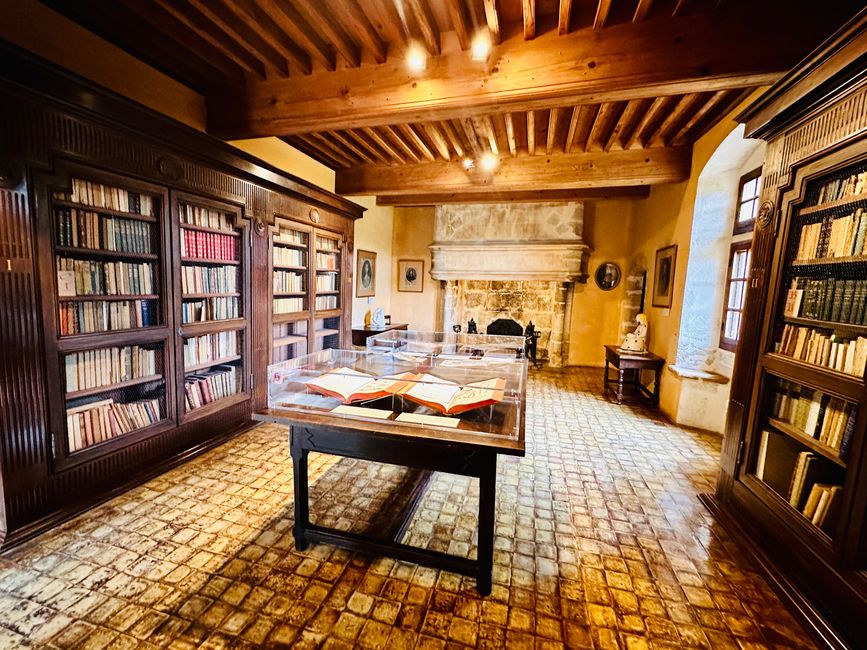
In a part of the former castle chapel, there is a leaded glass window depicting the coat of arms of the d'Agoult family. This later became the coat of arms of Lourmarin.
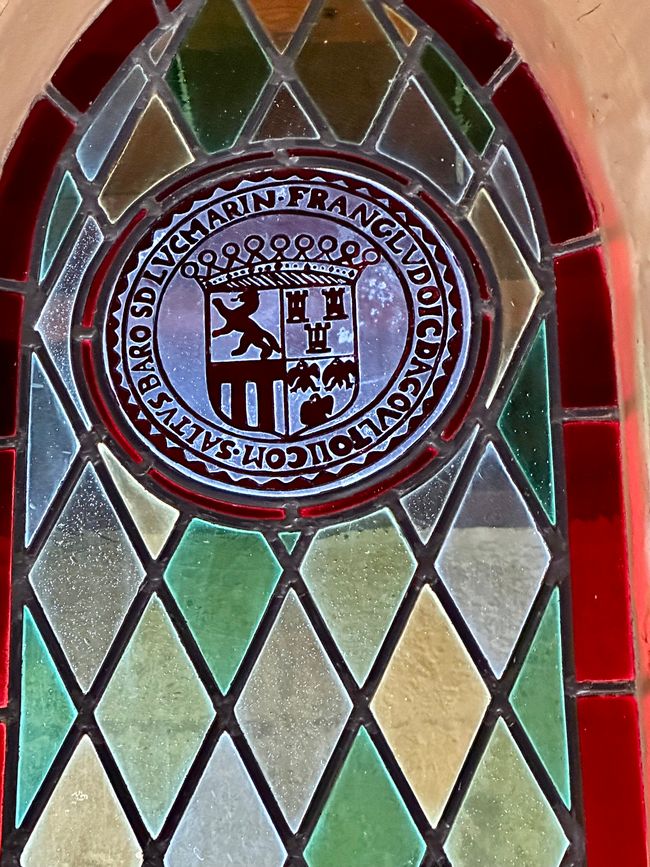
The spiral staircase. This staircase, with its central double braid, is one of the most beautiful spiral staircases in southern France. It has 93 monolithic steps (each step is made from a single stone slab). This slab forms both the central column, the step, as well as the insertion into the wall of the tower. At head height, there is a carved frieze made up of 316 small motifs.
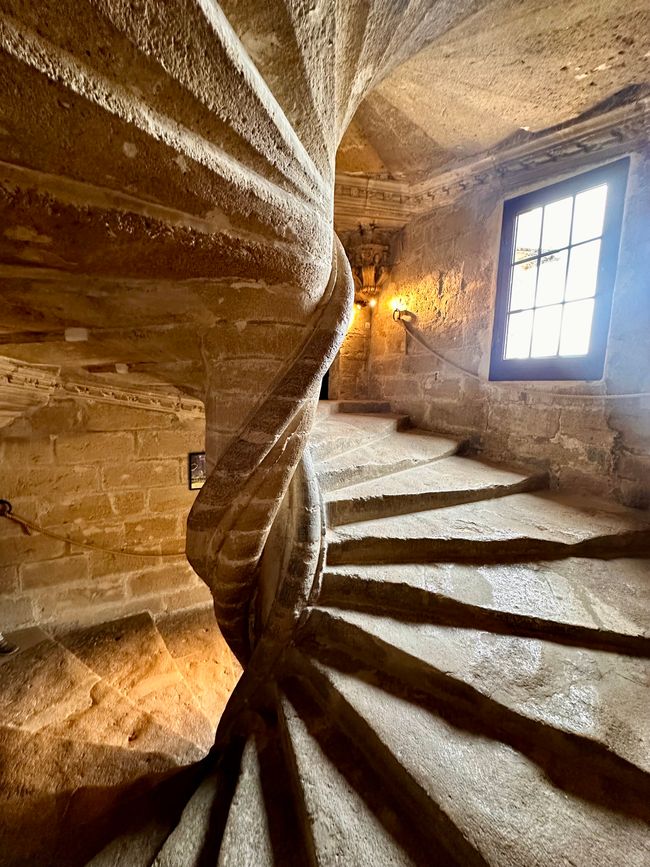
The kitchen. In this room with its ribbed vault, one is impressed by a monumental fireplace - the largest in the castle.
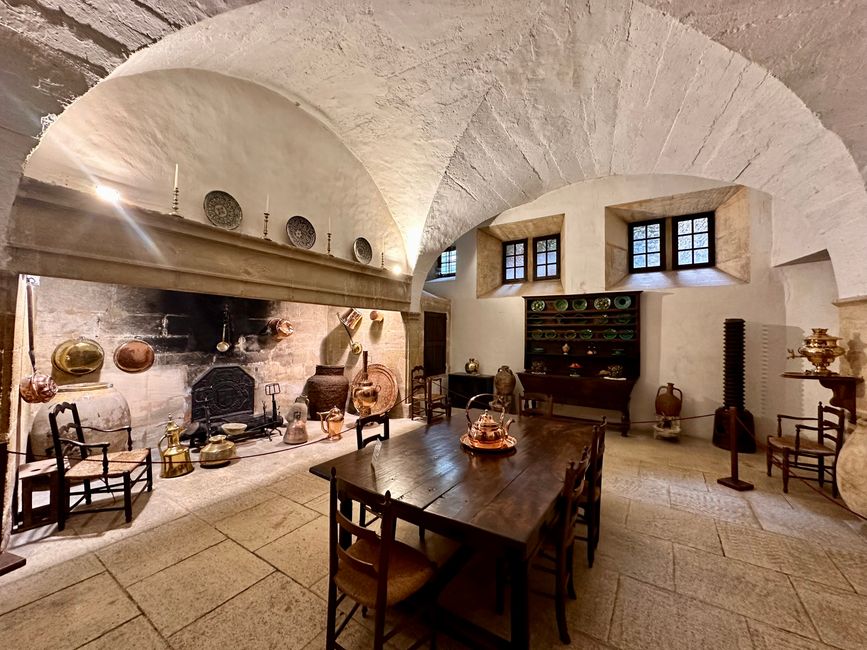
There are also several other rooms: the concert hall, the music room, the gentlemen's room, the Salon des États (living room) where the lord of the castle held his receptions, and the salon. One room particularly captured my interest, the ladies' room, a bedroom from the 18th century furnished in Provençal style. The Provençal bench for three people is called a Radassière. The floor is covered with faience tiles, and the screen, bedspread, curtains and cushions are adorned with fabric from Jouy.

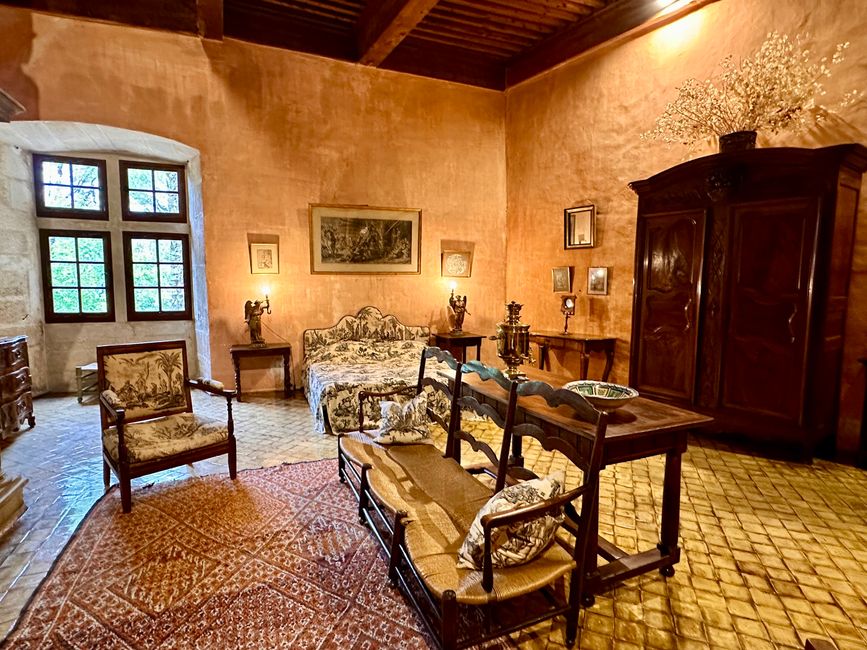
The tour through the history of the listed castle was a wonderful alternative program.

Afterwards, we strolled through Lourmarin. Not surprisingly, this village is among the most beautiful villages in France. The village, located on a small hill, is characterized by three bell towers and a variety of narrow streets that circle the village center. Well-preserved shops, galleries, restaurants, and houses.
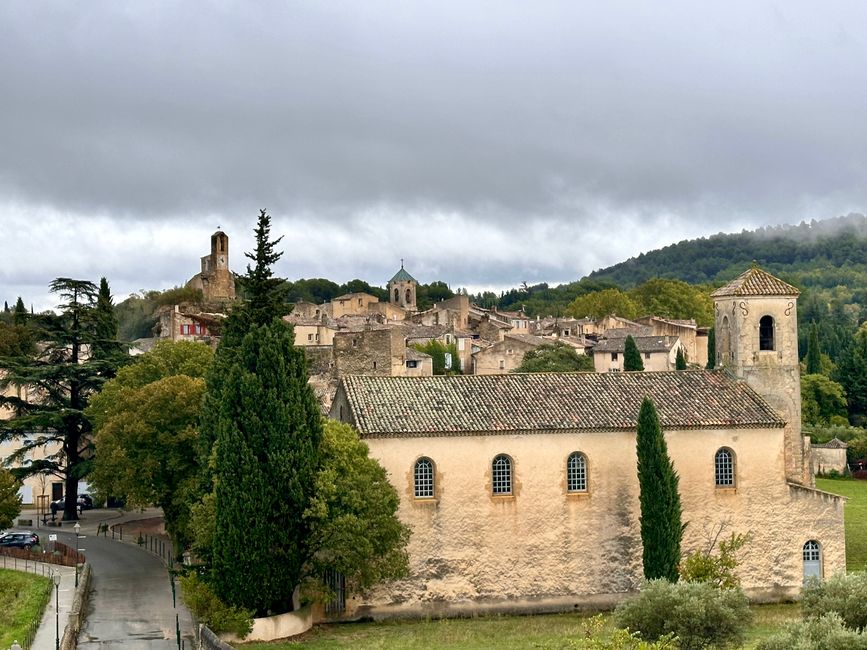
In the afternoon, the weather turned beautiful and warm again, and the drive through the lovely green landscape was a feast for the eyes.
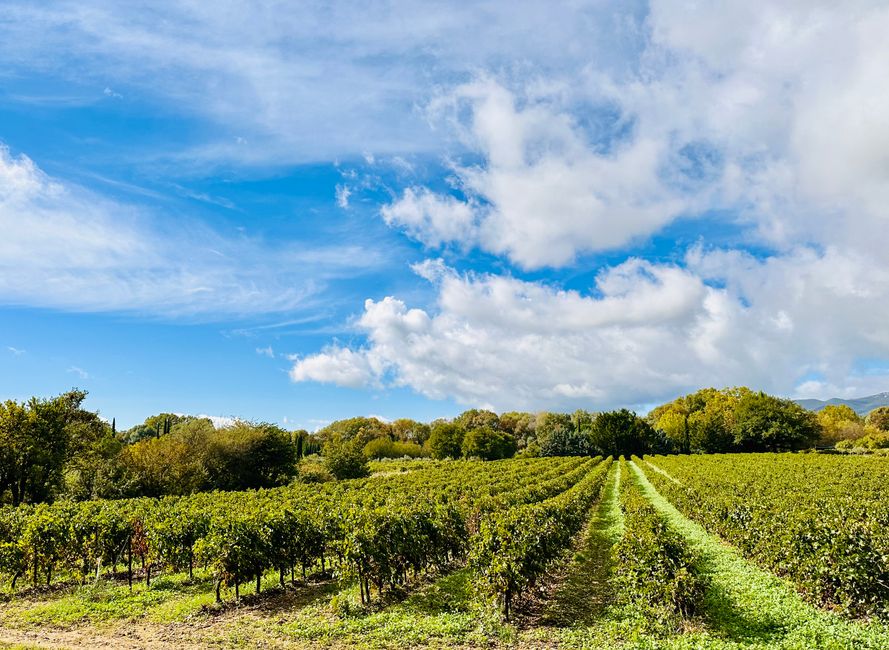
Tomorrow we will continue on to Spain 🇪🇸
Habar býulletenine ýazylyň
Jogap (3)
Henning
Eure interessanten Berichte haben meine Erinnerungen an verschiedene Aufent-
halte auf dem wunderschönen Flecken Erde Provence angeregt. Eine Episode zeigt, dass selbst ein Weltstar von dieser besonderen Atmosphäre nicht unbeein-
drckt ist. Also: Im September 1987 machten Christa und ich in Erinnerung an unsere Verlobungsreise vor 30 Jahren erneut eine Fahrt an die Côte d`Azur. Dabei legten wir einen Zwischenstop im angesagten Saint-Paul-de-Vence ein. Nach unserem Rundgang durch den Ort bemerkten wir auf dem Dorfplatz eine kleine,
aber recht laute Menschenansammlung. Beim Näherkommen erkannten wir Yves
Montand beim Boule spielen mit seinen Copains. Er dirigierte das Schauspiel mit seiner tollen Statur, mit grossen Gesten und kommentierte mit seiner grossartigen Stimme jeden Wurf. Er spielte selbst aber auch herausragend gut. Ebenso wie wir, die wenigen Zuschauer und seine Mitspieler hatte er wirklich einen Riesenspass an diesem friedlichen Spätvormittag. Am Ende des Spiels bedankte er sich bei allen mit einem einfachen MERCI und einem Handschlag bzw. einer Bise bei den Damen. Maja Feierabend
Buen viaje en España! Que vos divertiais!Lieber Henning
Das sind ja schöne Erinnerungen! Ich hätte gerne mit Yves Montand pétanque gespielt, es war ein toller Schauspieler. Und die Backe für die Bises am Schluss der Partie hätte ich auch hingehalten 😀liebe Grüsse Katrin
